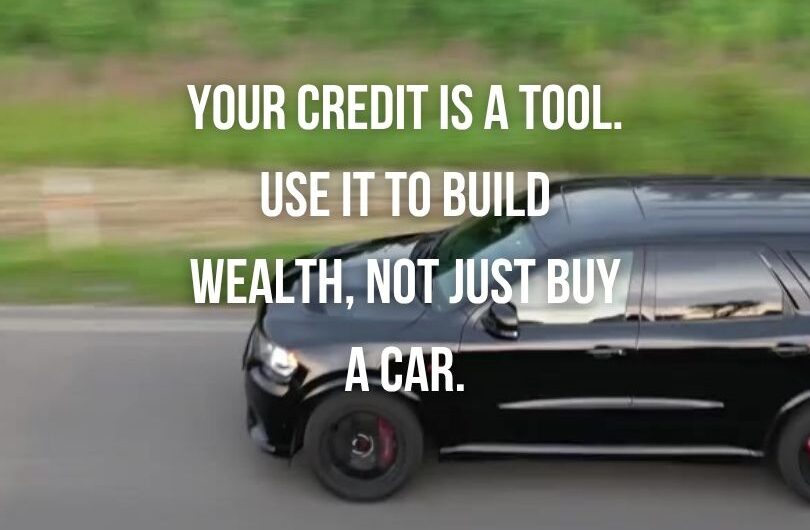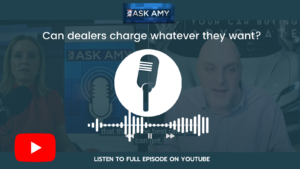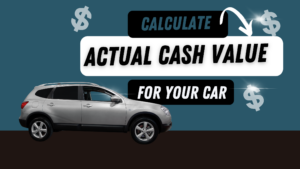Car financing doesn’t have to be confusing—and it definitely shouldn’t leave you with regrets. Whether you’re a first-time buyer or a seasoned pro, getting the best deal starts with understanding how car loans really work.
Let’s break down what most dealers don’t tell you with these car finance tips, and how to make smarter choices based on your full financial picture—not just what sounds good in the moment.
Most People Focus on the Wrong Numbers
Everyone wants a low monthly payment. But chasing a smaller number often means stretching your loan to 72 or even 84 months—and that can cost you thousands more in interest.
Here’s a quick comparison:
| Loan Amount | Term | APR | Monthly | Total Interest |
|---|---|---|---|---|
| $30,000 | 48 mo | 4% | $677 | $2,474 |
| $30,000 | 72 mo | 4% | $469 | $3,781 |
| $30,000 | 96 mo | 4% | $364 | $4,873 |
We had a client with excellent credit recently opt for a 36-month loan instead of 72. Yes, the monthly payment was higher—but they saved thousands in interest. Once we walked through the math together, they had that “ah-ha” moment.
💡 A lower payment doesn’t always mean a better deal. Run the numbers before you sign anything.
Should You Put More Down?
This surprises a lot of people: putting a large down payment isn’t always the best move.
Sure, it lowers your monthly cost—but it also ties up your cash in a rapidly depreciating asset. Sometimes, holding onto that cash gives you more flexibility, especially if:
- You want a rainy day fund
- You have high-interest debt (like credit cards)
- You could invest the money instead
One of our clients skipped the extended warranty and banked the money instead—keeping their cash liquid and earning interest. Smart move.
That said, if your credit isn’t great, a larger down payment can help lower your rate and avoid being upside-down on the loan. It’s all about knowing your situation.
Want More Control? Get Pre-Approved
The best way to stay in control of your car purchase? Get pre-approved before talking to the dealership finance manager.
Benefits of Pre-Approval:
- Know your rate and terms ahead of time
- Strengthen your negotiating power
- Avoid unnecessary credit pulls
- Shop lenders on your own terms
This lets you drive the conversation—literally and figuratively.
And it also doesn’t mean that you will go with the bank or credit union you were preapproved from. This just allows you a baseline to start.
Now, when the finance manager offers 6% you can say, I can do better than that at my bank.
If You Have Excellent Credit, Don’t Leave Money on the Table
If your credit score is 740 or higher, you’re in the top tier of car buyers—but that doesn’t automatically mean you’re getting the best deal.
In fact, many people overpay simply because they don’t look at the full picture.
We’ve seen professionals with amazing credit make decisions that cost them thousands just because no one showed them the math.
We’re here to change that.
Our goal as YCBA Advocates is to educate you on your options. If it means that you take a high payment option to get an incentivized rate, we will help you weigh that option.
It makes more sense in most cases to pay more monthly to save thousands in the long run. But that of course is up to you, the consumer.
The dealership is not going to present you with options that favor your financial health. They have only their best interest in mind. That’s why you need to have all of the options in front of you before you can make an educated decision best for you.
Business Owner Car Finance Tips: Don’t Sleep on the Tax Perks
Buying a vehicle through your business? You might qualify for significant tax advantages.
If it’s used for business purposes, Section 179 could allow you to deduct a large portion of the vehicle’s cost the year it’s placed in service. You could also explore standard mileage deductions, depending on how you use the car.
💼 Always talk to your CPA, but don’t skip this conversation—it could save you a lot.
Is it better for you to lease or buy? Have you considered possible tax benefits?
Real Talk: What We Ask Our Clients
When we help someone buy a car, we go beyond the surface questions.
Yes—we may ask things like, “Do you have any credit card debt?”
It’s not to be nosey. But because if you’re paying 24% interest on a card, maybe it’s smarter to pay that down instead of putting the 10K down on a new car with a 5% interest rate.
These decisions are all connected, and we want to help you make the best possible one for your financial future.
Here’s what we walk through:
- What’s the total loan cost—not just the monthly payment?
- Do you really need an extended warranty if you are keeping enough cash for emergencies?
- Could your down payment work harder elsewhere?
- Are you overlooking any tax perks (especially if you’re a business owner)?
- Have you looked at other lenders outside the dealership?
These are big purchases. You should never feel rushed. Let’s take the time to look at all your options.
Our Philosophy: You’re in the Driver’s Seat
One thing that sets us apart? We don’t just chase the deal—we help you look at your whole financial picture.
We love the math (seriously—it’s our thing). And we know it’s not everyone’s thing. That’s why we make it simple and clear. We give you the options. You make the decision. That’s how it should be.
📈 Want Help Running the Numbers?
Book a free consult or contact us here. We’ll help you understand your options, see the full picture, and feel confident about your next vehicle purchase.
Frequently Asked Questions
What factors should I consider when choosing a car loan?
Individuals should look at the annual percentage rate (APR), loan term length, total loan amount, and any fees or prepayment penalties. Comparing offers from banks, credit unions, online lenders, and dealerships helps find the most competitive rates and terms.
Some lenders specialize in loans for those with bad credit or offer special programs for auto refinancing. Using an auto loan calculator can help estimate affordability and total cost.How do I calculate my monthly car payment?
A monthly car payment depends on the loan amount, interest rate, and loan term. Online auto loan calculators allow buyers to input these details and get an estimated payment.
Down payments, trade-in values, and sales tax can also affect the final monthly cost. Many banks and auto financing websites provide these calculators to aid decision-making.What is a competitive interest rate for auto loans?
Competitive rates vary based on credit score, loan type (new or used), and lender policies. As of 2024, prime borrowers often receive lower rates, while borrowers with lower credit may see higher rates.
Buyers can check rates offered by auto loan lenders like Bank of America to see current industry standards. Shopping around is vital to secure the best possible deal.Is it better to finance a car through a bank or a dealership?
Banks and credit unions typically offer straightforward loan products with clear terms. Dealerships may provide convenience and promotional rates, but sometimes these loans carry higher interest or extra fees.
It is advisable to get pre-approved from a bank or an online lender before visiting a dealership. This allows buyers to compare offers and negotiate more confidently. We always allow the dealership to try to beat whatever finance rates we have from a local credit union so that they can earn the business.How does my credit score affect car loan rates?
A higher credit score generally qualifies for lower auto loan rates and more loan options. Lenders see higher scores as less risky, resulting in better terms.
Those with bad credit may still get approved, but often at higher rates. Some car-buying services and lenders specialize in helping buyers with low credit or offer auto refinance options if credit improves.What are the pros and cons of financing a used car?
Financing a used car usually means lower monthly payments and less depreciation compared to new vehicles. Options for used cars may include loans from banks, online lenders, or platforms like Carvana and MyAutoLoan.
However, used cars can carry higher interest rates and shorter loan terms. Buyers should thoroughly inspect used vehicles and compare costs before making a decision.
If you want to find out how to get a YCBA Advocate working for you, visit the YCBA Car Buying Concierge to schedule a free chat. Find out if working with an advocate is right for you!







